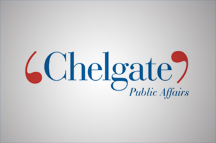2020 should have been the European Union’s climate action year. The European Commission announced trailblazing initiatives within the scope of the new European Green Deal, like the first-ever Climate Law or the Circular Economy Action Plan to reach the EU’s climate neutrality objective.
The outbreak of COVID-19, however, turned the EU’s climate action agenda upside down. While the Green Deal increasingly sinks into oblivion amid the worsening of the pandemic, adhering to the Deal’s objective of a sustainable, resource-efficient economy could actually play a part in overcoming the current public health crisis.
The European Green Deal has been on everybody’s lips ever since Commission President Ursula von der Leyen took office last December. Buzzwords such as “Climate Law” or “Biodiversity Strategy” have clustered the front pages of Euractive, Politico and Commissioner Timmerman’s Twitter ran on full speed. Scientific concepts such as Circular Economy began trending, and the layout of the institution’s official websites changed from EU-blue to climate-green.
In short, there was no way of getting around the climate topic.
Not unsurprisingly, as the Green Deal is by far the Commission’s most ambitious proposal to tackle climate change and environmental challenges. With the Green Deal, the EU took the gloves off: setting out countless initiatives to achieve the net-zero objective by 2050. The Green Deal is the EU’s master plan to cut pollution, restore biodiversity, decarbonise the energy sector and transform the economy to make it clean, resource-efficient and circular. Perhaps most importantly, and unlike many previous EU climate action initiatives, the Green Deal has hit the nerves of policymakers, scientists and industry players, the latter being the tailwind driving a green transition and inevitable for the success of the Deal.
But the Green Deal’s media success story came to an abrupt halt by the end of February when the first #coronavirus hashtag appeared on von der Leyen’s Twitter. Ever since, the hot topic of climate action has widely disappeared from the EU’s radar, making way for screenshots of online conferences of high-level politicians on coronavirus response, pictures of von der Leyen on the phone with EU-leader and clips on handwashing challenges.
Can a climate crisis be ignored amid the outbreak of a health crisis?
Let’s get this straight: a European response to Coronavirus is vital. Above all to save lives, but also to adhere to the spirit of European solidarity, be it when French patients are being taken care of in Austria, when Germany reserves ICU beds for Italians, or when deployed Romanian doctors treat critically ill patients in Bergamo. Public safety is the EU’s top priority, and in light of the rising death toll in Europe and elsewhere in the world, it is of utmost importance to deliver coordinated European crisis management.
What must not be forgotten, however, are the costs that arise when climate action is being put on hold for too long. The WHO estimates an annual of 4.2 million deaths as a result of exposure to air pollution, and an additional 250.000 deaths per year from heat stress and malnutrition. These numbers do not factor in the fatalities associated with extreme weather events. From an economic perspective, a warmer planet will cause a big blow to the GDP, be it due to job losses, livestock or crop mortality. These figures must be kept in mind when climate action is put on the side-lines for an unforeseeable time.
A one-way street?
The arising debate about side-lining climate action to address the health crisis departs from the wrong assumptions. Indeed, it must not be an either-or question. Much rather, adhering to the fundamental principles of the Green Deal can help to overcome the negative repercussions of the COVID-19 crisis and prevent a Eurosclerosis 2.0.
In the face of a looming recession, following the Green Deal’s agenda on strengthening the European clean technology sector can counteract an economic downward spiral by boosting growth and innovation. For emerging green industries to continue delivering new jobs, strengthening SMEs and creating new value chains that offer a sustainable path towards recovery, it is vital to further stimulate investments in the green transition and withstand the misleading temptation to counteract recession by reviving carbon-intensive industries.
In a similar vein, in times in which the EU’s leadership capacity is increasingly under fire, a green recovery response to the health crisis can consolidate the EU’s net-zero forerunner position. When critics instrumentalise the pandemic to rail against the EU’s capacity to deliver a coordinated European crisis response, joint cross-country cooperative projects within the scope of the Green Deal can steal their thunder. Green Deal initiatives, such as the newly established “Clean Hydrogen Alliance” or the “Circular Plastics Alliance”, continue to testify that cross-border cooperation in common European spirits bolster EU solidarity, cohesion and unity. Green transition projects among industry, science, academia and civil society are strong pillars which uphold the European project in times in which physical and psychological borders are being closed down to mitigate the spread of the virus.
Last but not least, adhering to the Green Deal’s climate targets amid the outbreak of the pandemic is crucial not only to safeguard the credibility of the EU’s climate action ambitions, but also to protect the very essence of the EU’s force. The EU’s ability to act rests upon its normative power, which allows it to set standards through the power of attraction rather than through force or coercion. This force can only unfold if the EU upholds its authenticity and credibility. The hard-earned support for the green transition can only withstand the current crisis if the EU delivers the promises made under the Green Deal.
This health crisis can showcase that the Green Deal is indeed “Europe’s growth strategy”, as long as the principles of a green transition guide the EU’s Coronavirus response and recovery efforts. The emergence of green Coronavirus response initiatives such as MEP Canfin’s “Green recovery alliance” are a step in the right direction.
by Careen Becker, Consultant












